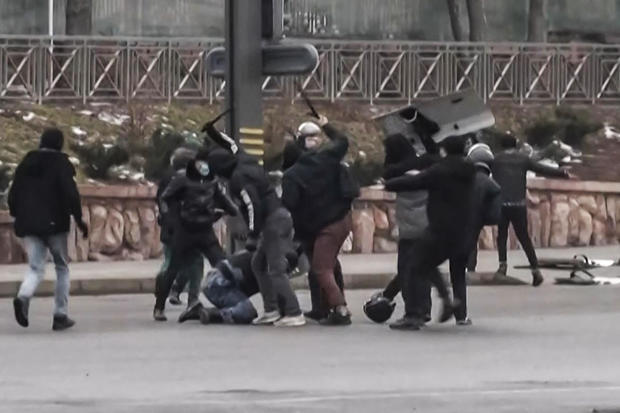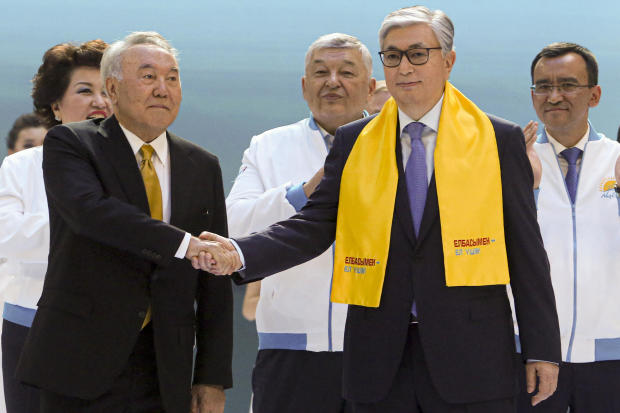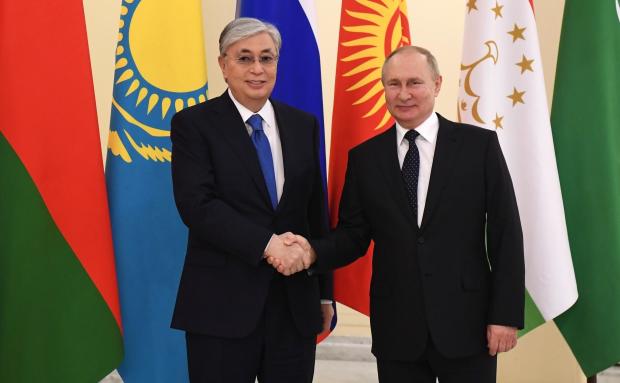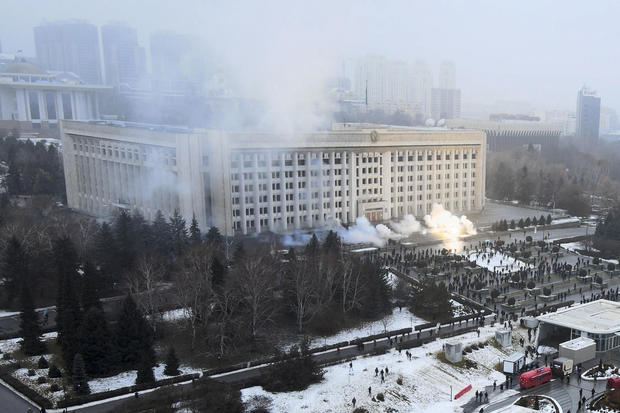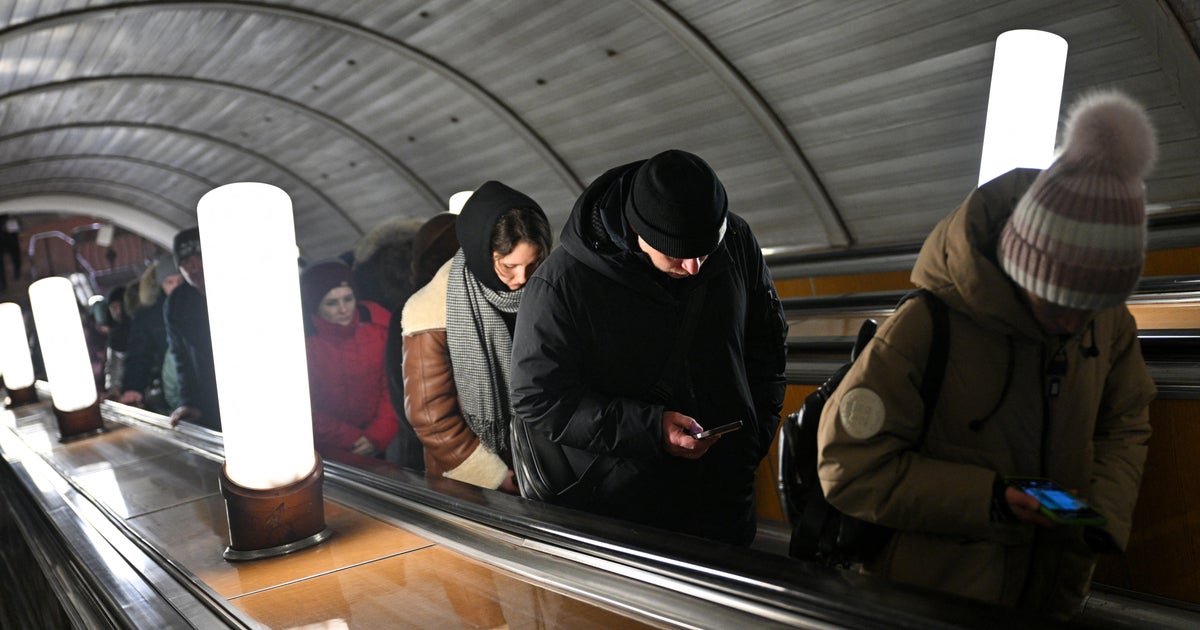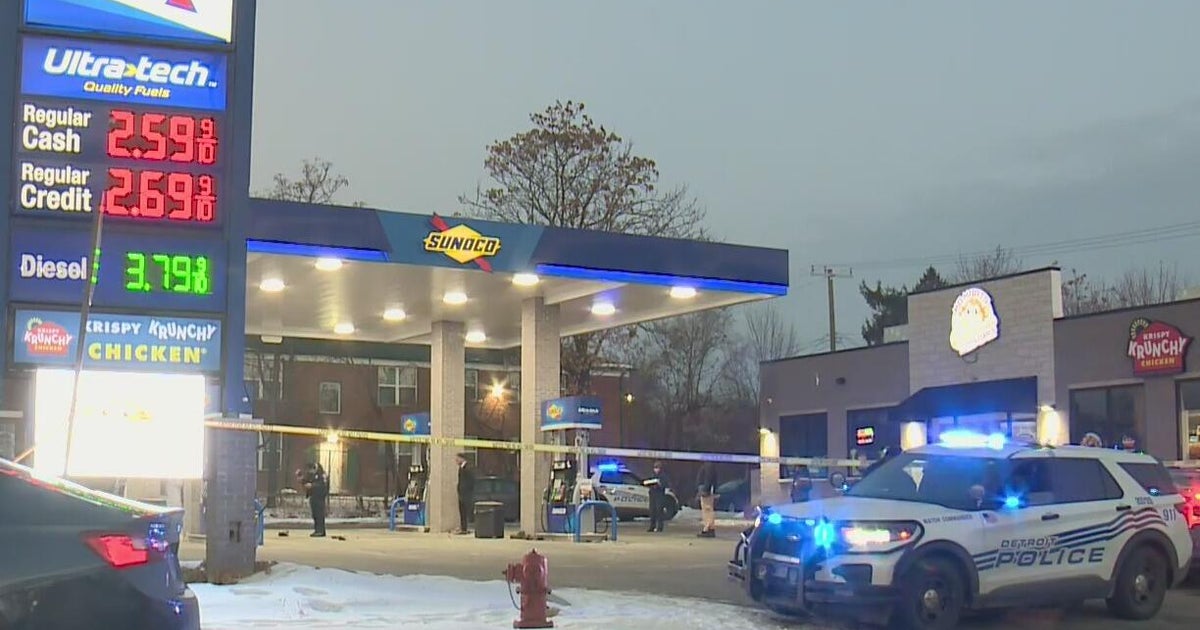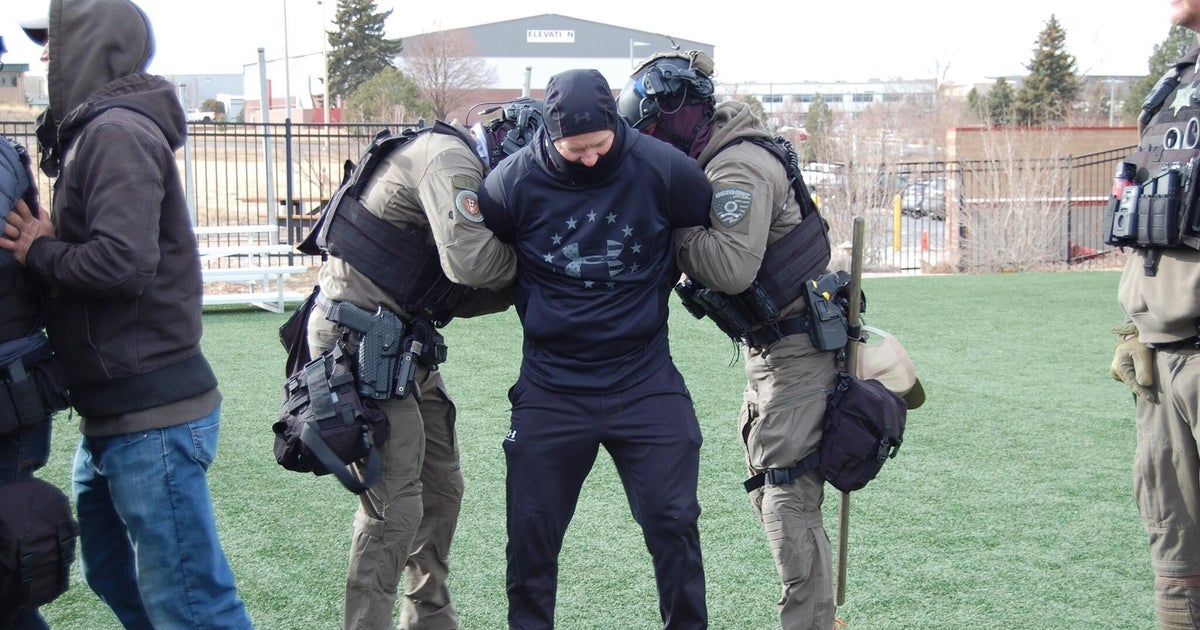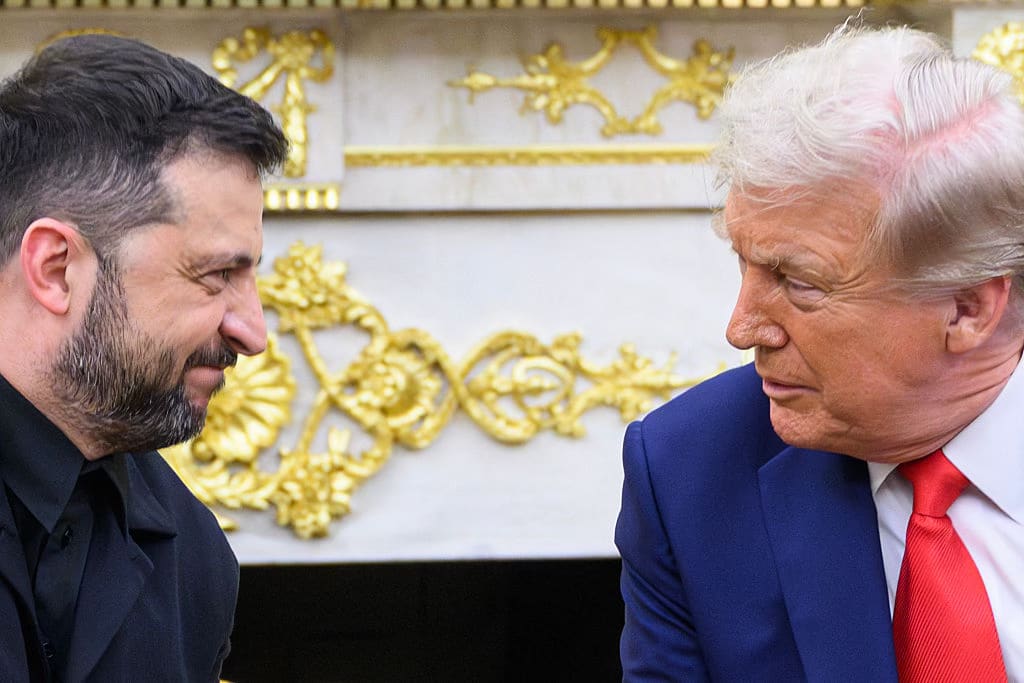Russia sends troops into Kazakhstan as clashes between security forces and anti-government protesters turn deadly
Moscow — Russia has sent military hardware and paratroopers to Kazakhstan as part of a "peacekeeping" mission following a plea from President Kassym-Jomart Tokayev. The Kazakh leader has vowed to quash massive protests across the country that started over gas prices, but have quickly spiraled into a much more significant challenge to the authoritarian leadership of the former Soviet Republic.
On Thursday the protests turned deadly. Police in Almaty, the country's biggest city, told local channel Khabar 24 that "dozens" of protesters had been "liquidated" following attempts to storm government buildings.
State TV said 12 law enforcement officers were also killed, including two who were purportedly found beheaded. More than 1,000 people were injured across the country, health officials said.
The Collective Security Treaty Organization (CSTO), a Moscow-led alliance of six former Soviet states —Russia, Armenia, Belarus, Kazakhstan, Kyrgyzstan, and Tajikistan — promptly approved Tokayev's request to send additional forces to back up his own security services. It was the first major action by the CSTO since it was founded more than 20 years ago.
The CSTO did not confirm the size of the Russian deployment to Kazakhstan, but local media reported as many as 3,000 troops had been sent to back up the Kazakh forces.
Kazakhstan has been engulfed in anti-government riots throughout the week, which began with grievances over fuel prices but quickly turned political. Protesters demanded a change in power and a complete withdrawal of Tokayev's mentor and predecessor, Nursultan Nazarbayev, from politics.
Nazarbayev handpicked Tokayev in 2019 as he stepped down as the first president of the country, but he remained the head of the Security Council, enjoying significant influence. As the protests grew this week, Tokayev removed Nazarbayev from his post and sacked Kazakhstan's cabinet, but vowed that the government would not fall.
Authorities have imposed a nationwide state of emergency and a night-time curfew. Virtually all flights, both domestic and international, were canceled in Kazakhstan and train connections were disrupted, officials said.
The CSTO said the Russian paratroopers, who were to be joined soon by forces from other member nations, planned to ensure "security of important government and military sites" and assist Kazakh law enforcement in "stabilizing the situation."
Kazakhstan is a close strategic ally of Russia, which is very sensitive to any unrest in the former Soviet Republics. The deteriorating situation in Kazakhstan presents a fresh challenge for President Vladimir Putin, as he has long sought to make his country the primary power in the region.
"Kazakhstan is another test, after Belarus, of Russia's ability to help stabilize its formal allies without alienating their populations," Dmitry Trenin, director of the Carnegie Moscow Center, wrote in a tweet. "Lots of potential pitfalls around, but can be a big boon if Moscow succeeds."
The violence in Kazakhstan comes amid soaring tension along Russia's western borders, as Moscow presses the West to sign legally binding guarantees that NATO will refrain from any eastward expansion. Most importantly, Putin has demanded that the U.S. and its European allies deny Ukraine's bid for membership in the transatlantic security alliance.
Russia has massed tens of thousands of troops near the Ukrainian border, with U.S. officials warning that Putin's forces may be preparing to invade. Putin, on the other hand, accuses NATO of causing the tense standoff by bolstering its military presence close to Russia's western flank. He has routinely accused the U.S. and its European allies of fomenting and supporting uprisings around the world, and particularly in the former Soviet Republics, which Moscow considers its own back yard.
"We view the recent events in a friendly country as an attempt to undermine the security and integrity of the state by force, using trained and organized armed formations, that is inspired from the outside," Russia's Foreign Ministry said Thursday of the decision to deploy forces to Kazakhstan. The statement offered no further information on the purported "outside" inspiration for the protests.
Russian and U.S. diplomats are scheduled to meet next week in Geneva for negotiations aimed at easing the tension, following two calls between Putin and President Joe Biden.
"The Kremlin needs to divide attention between the two and manage strategic instability on two fronts," Carnegie Center analyst Alexander Baunov tweeted. "Looks like Ukraine and NATO are no longer the only main focus of the future Russia-US talks, there is a new hot-button issue for negotiations with Biden.
Baunov said the new crisis would make it "harder for Putin to make a concerted effort on his key diplomatic front," which has been the standoff over Ukraine.
